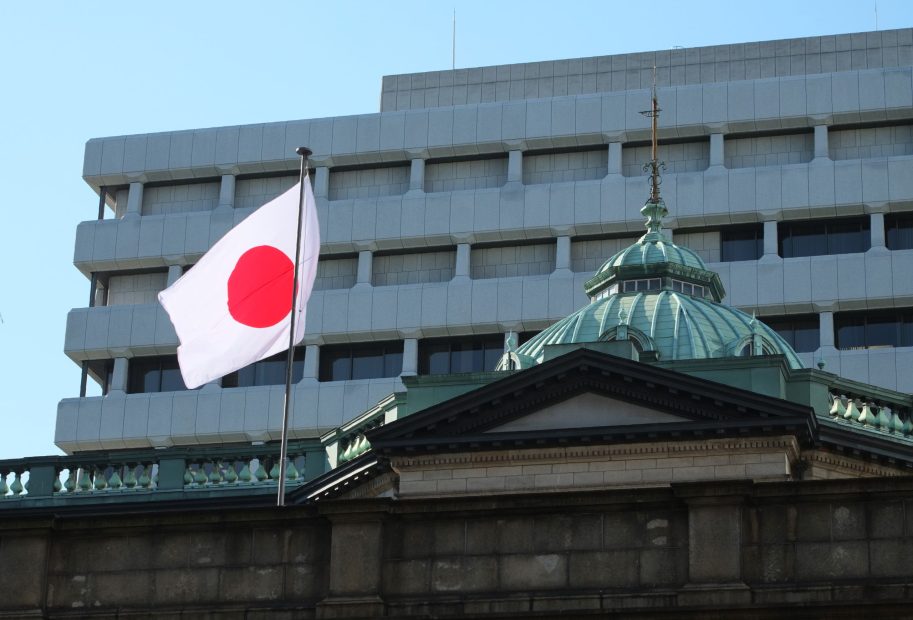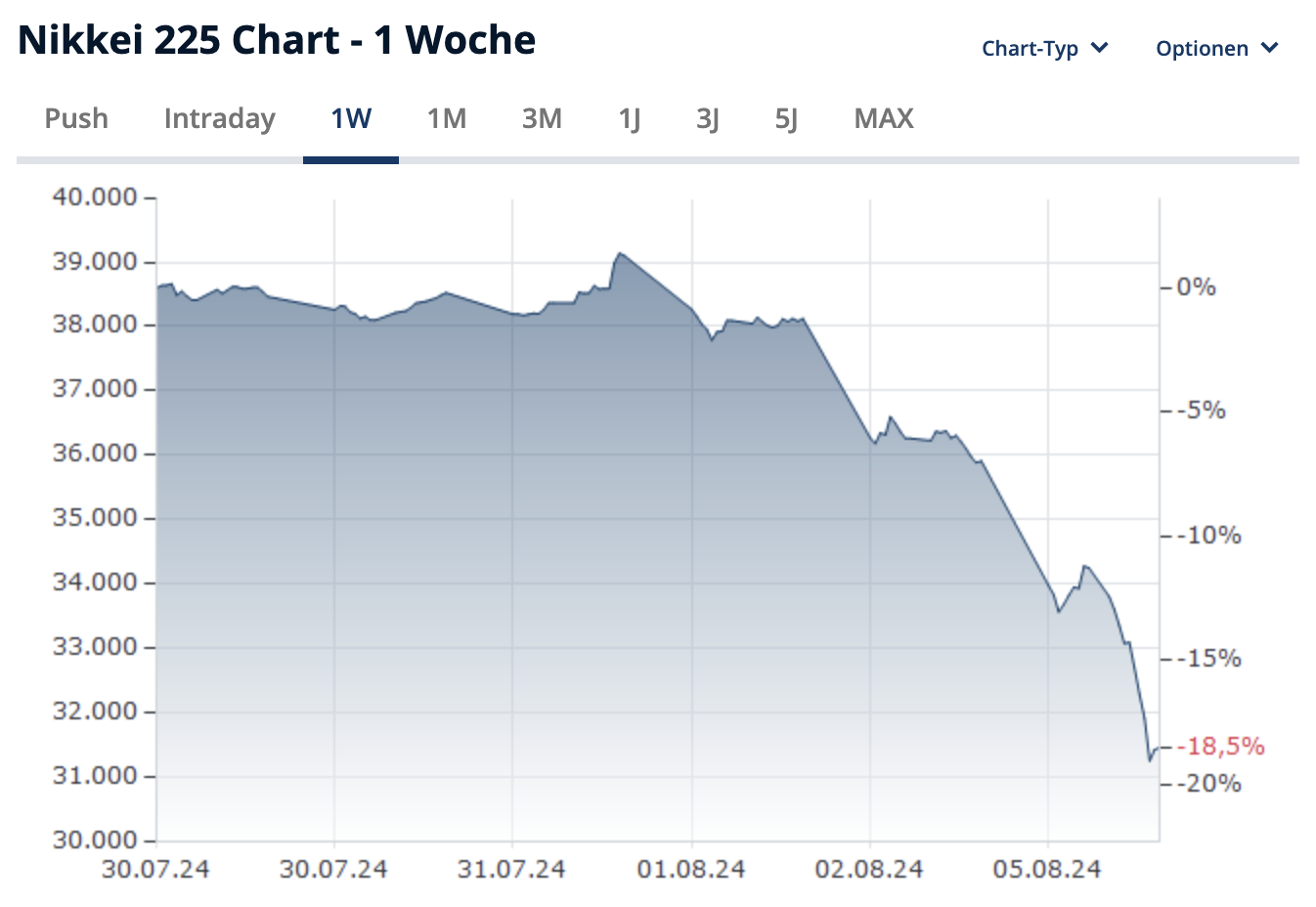Buy the dip? Strong yen wipes out 20 percent of stock market value in Japan

- The Japanese stock index Nikkei 225 has fallen by around 19 percent within seven days.
- According to Kelvin Tay of UBS Global Wealth Management, the main reason for this is the stronger yen, which is putting pressure on the stock market, CNBC reports.
- A stronger yen affects the competitiveness of trading houses and export-oriented companies in Japan.
The Nikkei 225 has fallen by around 19 percent within seven days, even though the Japanese stock index recorded an all-time high this year and broke the 40,000 point mark.
But the wind has now changed: Entering the Japanese market is currently like “catching a falling knife,” Kelvin Tay, regional chief investment officer at UBS Global Wealth Management, told the US news channel CNBC.

“The only reason the Japanese market has risen so much in the past two years is because the Japanese yen has been very weak. As soon as it reverses, you have to get out, and I believe that is the case now,” Tay said.
Yen rises sharply after interest rate hike
The yen, which fell to a 38-year low of 161.99 against the US dollar in June, has made a U-turn ahead of the Bank of Japan's (BOJ) monetary policy meeting. It rose sharply after the BOJ raised its key interest rate to 0.25 percent last week and decided to reduce its purchases of Japanese government bonds. The yen is currently trading at 142.86 against the US dollar (155.85 euros).
A stronger yen puts pressure on Japanese stock markets, which are heavily dominated by trading houses and export-oriented companies, as it affects their competitiveness.
Tay believes the yen can be an indicator of whether the Japanese market will do well. As the yen has strengthened, stock markets have declined. While Tay acknowledged that some of the market gains were due to the Tokyo Stock Exchange's restructuring efforts, the main reason was the Japanese yen.
So-called yen carry trades are losing their appeal
One reason the yen plays such a large role in the Japanese stock market is the unwinding of so-called “yen carry trades.” When the yen was weak and BOJ interest rates were zero or negative, investors borrowed in yen and invested the proceeds in other assets. Based on the central bank's benchmark interest rates, an investor could have borrowed yen at 0 percent earlier this year and invested the money in the U.S., where he received an interest rate of 5.25 percent.
Now that the US Federal Reserve is threatening to cut interest rates and the Bank of Japan is raising interest rates, the interest rate differential between the two central banks will narrow, making a carry trade less lucrative and potentially setting the stage for further appreciation of the yen.
Tay expects the yen to reach a rate of around 143 to the dollar, but if Japanese life insurance companies and pension funds start bringing more yen back to Japan, the currency could rise to 135 to the dollar.